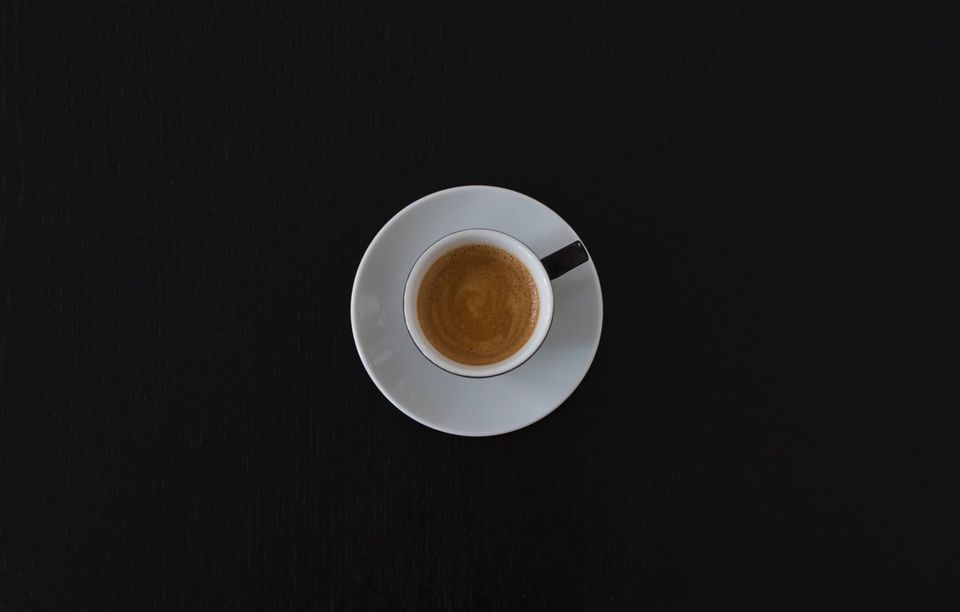Coffee and Appetite: Coffee's Effect on your Appetite

You can’t buy happiness, but you can buy coffee, and that’s pretty close
Every morning, billions of people worldwide reach for their favorite cup of coffee.
For many, it's a ritual to kickstart the day, boost energy, and even, as some believe, to curb hunger.
But does coffee genuinely suppress appetite?
Let's dive deep into the relationship between coffee and our hunger pangs.
The Science Behind Coffee and Hunger
Our bodies have intricate systems that regulate hunger and satiety. These systems can be influenced by various factors, including what we consume. Enter coffee, a beloved beverage, and a subject of numerous health debates.
While many turn to caffeinated coffee to control their appetite, recent findings suggest that if weight loss is your goal, decaffeinated coffee might be your best bet.
The Global Coffee Phenomenon
Coffee is more than just a drink; it's a global phenomenon. It's consumed for various reasons, from boosting athletic performance to simply feeling more alert. And yes, many believe it's their secret weapon for weight loss.
Dr. Mehmet Oz once suggested that green coffee bean extract could be a weight loss miracle. But for those who'd rather sip than pop a pill, could traditional coffee also hold some weight loss secrets?
The Health Debate: Is Coffee Good or Bad?
In recent years, the health implications of coffee consumption have become a hot topic, largely fueled by media coverage and the opinions of TV doctors. This beverage, consumed by billions worldwide, has been both hailed as a miraculous health elixir and criticized as a potential health risk.
The debate is polarized, with some experts advocating for its numerous health benefits, from boosting metabolism to reducing the risk of certain diseases. On the other hand, some caution against excessive consumption, pointing out potential drawbacks such as insomnia or increased heart rate.
But why is there such a disparity in opinions?
The answer lies in the complexity of coffee's interaction with our bodies. For starters, our genetic makeup plays a pivotal role in how we metabolize coffee. This means that while one person might feel energized and alert after a cup, another might feel jittery or anxious.
Moreover, coffee is not just a source of caffeine; it's a complex blend of compounds that can influence various neurotransmitters and hormones in our body, including cortisol (often referred to as the "stress hormone") and insulin (which regulates our blood sugar). The type of coffee bean, the roast level, the brewing method, and even the time of day we consume it can all influence its effects on our body.
Additionally, individual factors such as age, body weight, tolerance level, and overall health can determine how coffee affects a person. For instance, someone with anxiety might find that coffee exacerbates their symptoms, while someone else might find it improves their focus.
What's Brewing in Your Cup?
Coffee is a cocktail of chemicals. It's the world's primary caffeine source, a stimulant that can both benefit and harm health. While caffeine can enhance athletic performance, coffee also boasts chlorogenic acids - antioxidants found in many fruits and veggies. These acids have gained attention for their potential to reduce hunger. However, before you rush to buy green coffee bean extract, know that the research is still brewing.
The Mystery of Appetite Control

Unlocking the secrets of hunger and satiety is every obesity researcher's dream. Hormones like ghrelin, leptin, and peptide YY play crucial roles. While ghrelin boosts appetite, leptin and peptide YY suppress it.
The big question: How does coffee interact with these hormones?
The Study: Coffee's Effects on Hunger
The study aimed to understand how caffeinated coffee, decaffeinated coffee, and caffeine alone affect hunger feelings and hormone levels.
The results? Decaffeinated coffee led to significantly lower hunger levels and higher PYY levels than other beverages. Interestingly, these effects persisted even after glucose ingestion.
The Verdict on Coffee and Appetite
While many have long believed in caffeine's appetite-suppressing properties, this study suggests that decaffeinated coffee might be the real MVP when it comes to curbing hunger. It's possible that other components in coffee, like chlorogenic acid, play a role in this.
However, remember that all bodies are different.
If you're using caffeine as an appetite suppressant, consider switching to decaf and monitoring how you feel. You might discover that not only are you less hungry, but you're also a tad bit nicer without that caffeine jolt!
Bottom Line
Coffee, rich in antioxidants, offers numerous health benefits. However, it's essential to consume it mindfully. I recommend not exceeding 400mg of caffeine a day to ensure optimal health benefits without the potential drawbacks.
Additionally, to safeguard the quality of your sleep, it's advisable to avoid caffeine intake at least 7 hours before bedtime. Poor sleep can disrupt our body's hunger hormones, leading to increased appetite the following day.
But remember, coffee's effects vary from person to person. If you're leaning heavily on caffeine to control your appetite, consider a different strategy: Opt for decaf and tune into your hunger and fullness cues. You might discover that not only do you feel more balanced, but those around you also appreciate a more cheerful version of you!